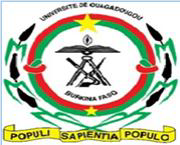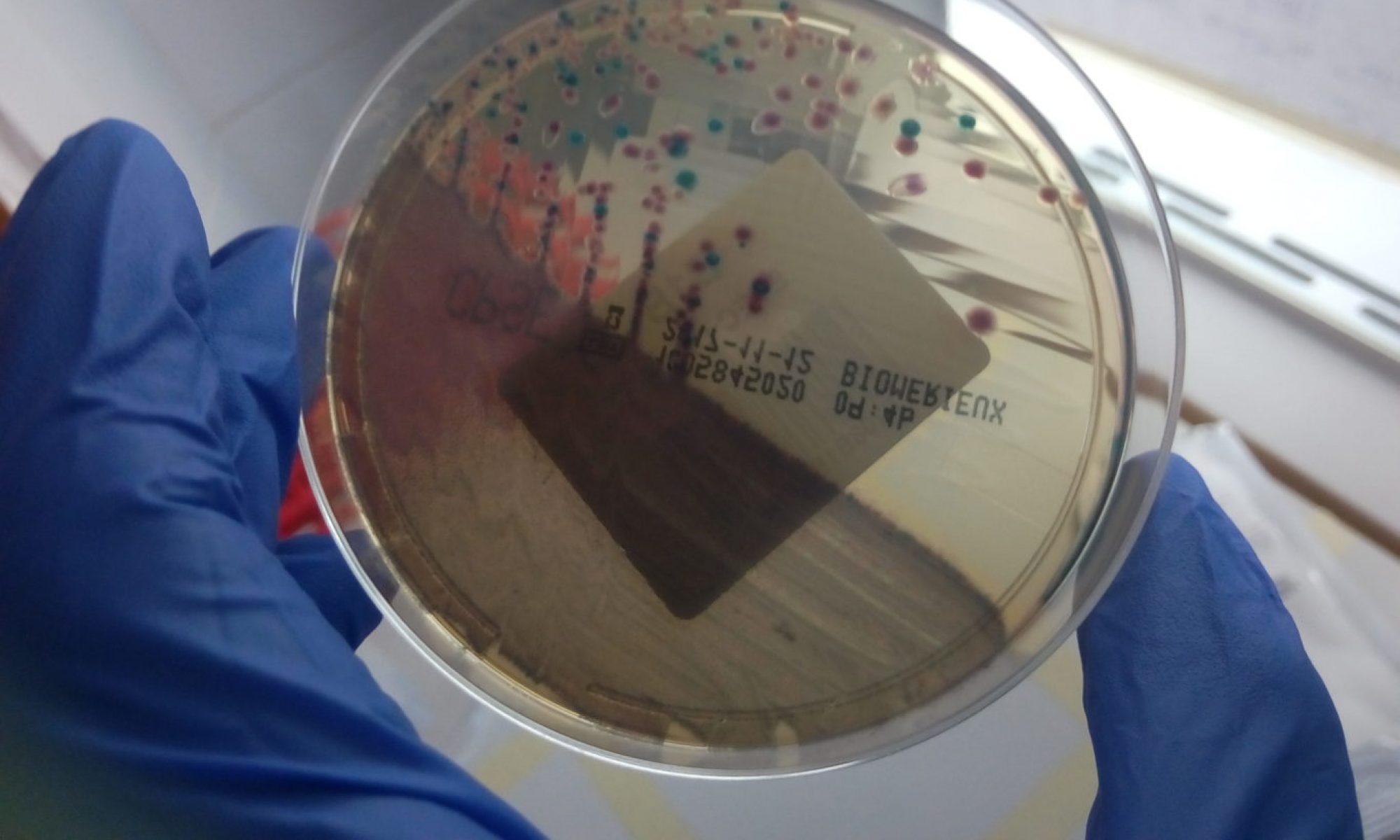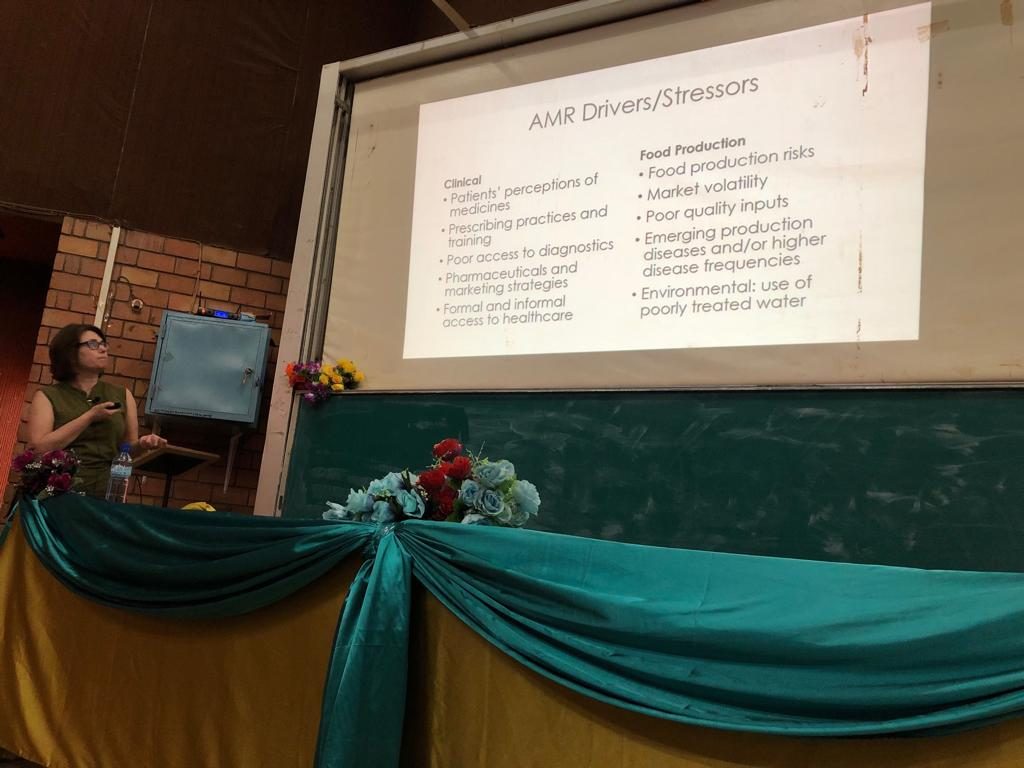
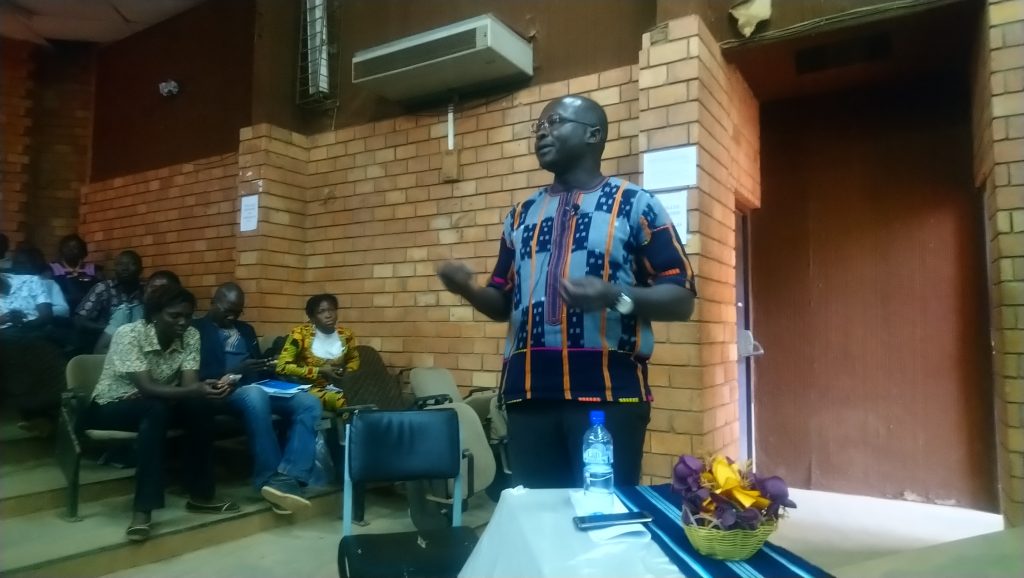
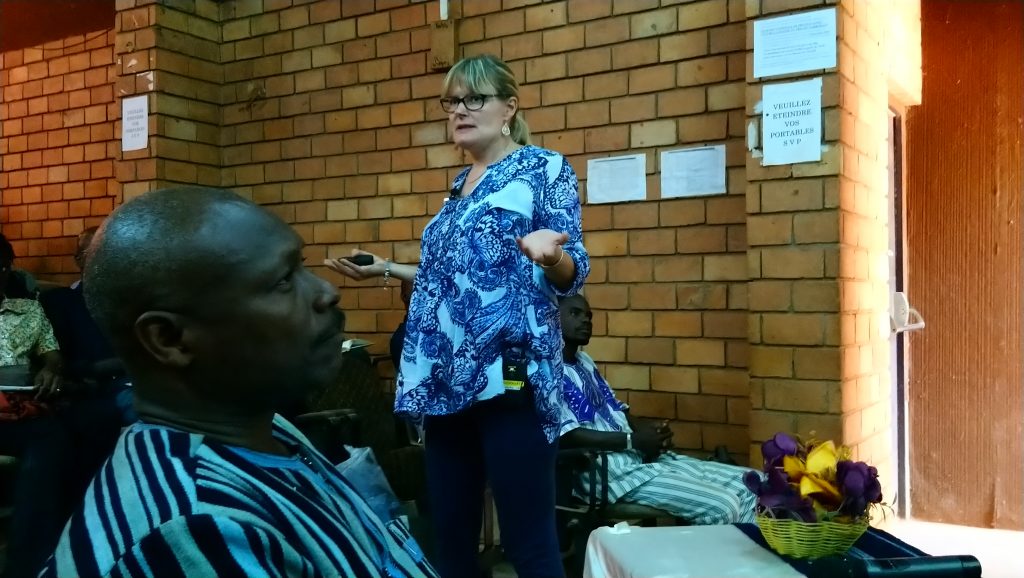

Greetings fellow travellers on microbial journeys. I am currently on a preliminary sociology field trip in Burkina Faso and Benin for AMRIWA (Antimicrobial resistance in West Africa), scoping out sites and making connections. Right now, I am in Cotonou on a solo trip, but I accompanied microbiologist and AMR coordinator Kaisa Haukka, and microbiology masters student Anniina Sarekoski to Burkina Faso for their first sampling visit, in the company of Dr Juste Isidore Bonkoungou, microbiologists and coordinator of Burkina Faso’s microbiology project team. (Kaisa and Anniina also travelled to Bamako in Mali to take samples, although I did not follow them there.)
During our visit, Dr Bonkoungou organised an open seminar at the Université Ouaga 1 JKZ (Joseph KI-ZERBO) to present information about AMRIWA and our One Health research processes. The seminar had approximately 100 attendees, ranging from students interested in forging careers in this area, to well-established faculty members, to others interested in, or those working with, the AMR challenge in Burkina. Stakeholder representatives from collaborating organisations, for example the Burkinabe Observatory for Healthcare Quality and Safety and the water services company ONEA (L’Office national de l’eau et de l’assainissement), were also in attendance, a result of the early dialogue between AMRIWA researchers and those who will be implementing the results in the future. The workshop was supported financially by the EDST-Ecole Doctorale Sciences et Technologie, Université Ouaga I JKZ and the Academy of Finland. Special guest in attendance was revered microbiology and virology Professor Nicolas Barro of the university.
Dr Bonkoungou opened proceedings by outlining the AMR challenge (globally and in Africa) and One Health as the intersectorial method for tackling the AMR, before outlining the strategic objectives of Burkina Faso’s intersectorial approach to AMR that includes strengthening the evidence base through monitoring and research, introducing effective infection prevention measures, optimising antibiotic use in clinical and food production, strengthening the legal framework, and introducing effective communications and education programmes to enhance awareness and understanding of AMR and its causes. Dr Bonkoungou then outlined the aims of AMRIWA to provide information on how genes circulate between humans, animals, food, water and soils by modelling the evolution of AMR genes in sentinel bacteria (for example E. coli) and strengthening the ability to predict the AMR dynamics in Burkina Faso.
Kaisa Haukka’s presentation was in two parts. For the first part, she focused upon AMR as a global health crisis by providing information on the pathways for AMR resistance genes to circulate between humans, animals and diverse environments before describing the various gene transfer mechanisms, and introducing state of the art sequencing technologies. For the second part, Kaisa outlined in more detail AMRIWA’s aims, using examples of environmental samples collected from wells, wastewater infrastructures, soils, poultry wastes, and fish guts in Burkina Faso and Mali during this field trip. She went on to discuss sequencing and observation methods that the project will apply, before demonstrating how AMRIWA is building the capacities of local researchers by training them in the use of state-of-the-art research methods and sequencing technologies relevant for monitoring AMR dynamics in the environment.
My presentation outlined the sociological component of the project, giving attendees a flavour for how the social sciences are engaging with the AMR challenge according to a One Health approach. I began by outlining the problem from a social science perspective and the methods applied, before describing the three themes of the sociology component: the perceptions of medicines and prescribing practices; documenting the social practices that provide pathways for the circulation of AMR genes between humans, animals, food, water and soils; and the challenges for implementing global science policy in different national contexts, particularly for emerging economies for whom priorities may be different. I illustrated the themes with examples from current and previous research, before describing the use of visual methods as a means of opening up communication between communities, scientists, and policy actors.
Following the presentations 45 minutes were allowed for questions. These included requests for clarification of both the microbiological and sociological methodologies, along with questions from students wishing to know how they can move forward in the field of AMR research. Ouagadougou based magazine Infos Sciences Culture, Les Journal de la Culture et des Sciences included a feature of the seminar in its February 2019 edition.

